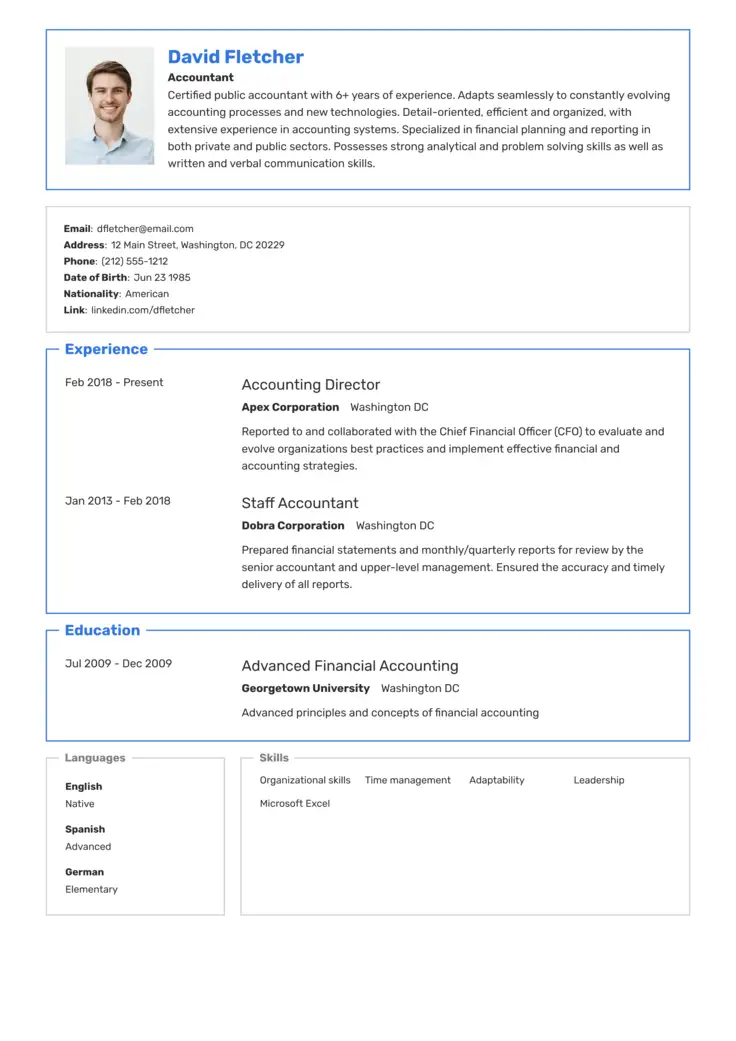Listing your qualifications on your CV is as easy as pie for some, and a complicated conundrum for others.
However, when it comes to crafting an exceptional CV, demonstrating your qualifications effectively is important. The way you present your qualifications can often be crucial in capturing the attention of potential employers and not having your CV overlooked.
It is not just about listing your qualifications, it’s also about doing so in a way that aligns with your chosen industry and the specific role you’re applying for.
With that in mind, this page provides a comprehensive guide on how to list your qualifications when writing your CV in a way that truly sells your skills and experience.
What is the qualifications section on a CV?
The qualifications section on a CV is a section dedicated to listing extra qualifications which suggest your levels of knowledge and training.
This section helps hiring managers understand more about your knowledge and qualifications and is a way of showing them that you are equipped for the job.
This section of the CV format not only shows interest in a specific area, but commitment as well. Recruiters want to know you are not just willing to do the job, but that you are interested in it and want to learn more.
Qualifications can include industry-specific courses which boost your employability and prepare you for a specific job. But they can also extend to courses that aren’t relevant to a specific job and instead benefit all kinds of jobs.
Where to add your qualifications on a CV?
It can sometimes be difficult to differentiate academic qualifications from other miscellaneous qualifications, However, they should be separated into 2 different sections; Education and Qualifications.
Separating these qualifications makes it easier for recruiters to see your academic background and your extracurricular/additional courses and qualifications.
You can list your additional academic qualifications and certificates under the education section of your CV. However, if you prefer, you can also list them separately in the qualifications section and save your education section for a standard GCSE, A level, college and university structure.
There are no set rules. You may choose whichever option suits your CV template best.
For school-leavers and graduate students, it is normal to have more academic qualifications than industry-related ones. Hence, it may be more suitable to list all qualifications under Education.
That said, many leave school or university with a variety of qualifications, such as the DofE (Duke of Edinburgh) certificate. Or perhaps you achieved a high grade certificate in music or dance.
In this case, list these qualifications in a separate section to show hiring managers that you achieved extracurricular certificates and qualifications while studying. This can demonstrate dedication and good time-management.
Key qualifications to include on your CV
There are different types of qualifications that you can include on your CV. Qualifications which are linked directly to the industry in which you want to work, and qualifications which include relevant qualifications which complement the job specifications.
It’s important to orient your CV around the types of job for which you are applying. Bear in mind that recruiters will be looking for qualifications which show you are prepared for the job.
You may also choose to include achievements and qualifications which you feel make you stand out from the rest. If you possess a qualification such as a foreign language or a noteworthy certification which may single you out, it is a good idea to list it.
Finally, it’s worth including other work-orientated qualifications which may not be directly relevant to the job specification. For example:
- First aid
- Fire safety
- British sign language
- Conflict management
- Photography
- Site management
- Advanced sales skills
- Beauty therapy: salon management
- Yoga teacher training
- Hospitality & catering
- Food hygiene
These qualifications benefit many jobs and are always interesting for hiring managers. Perhaps this saves the company time in training you or means that you are suitable for a different position.
CV qualification examples
If you are struggling to visualise what kind of course or certificate can be classed as a qualification, here are ideas of CV qualification examples for specific professions:
Teacher
Education
- PGCE in Secondary Education (English), University of Manchester, September 2023
- BA (Hons) in English, University of Oxford, July 2022
Qualifications
- Level 2 Award in Support Work in Schools, ABC Awards, June 2022
- Safeguarding and Child Protection Certification, NSPCC, March 2022
Administrator
Education
- Bachelor’s Degree in Business Administration, University of Birmingham, 2019-2022
- Relevant coursework: Business Analytics, Organizational Behaviour, Administrative Procedures, Business Communication, Office Technology
Qualifications
- Professional Certificate in Administrative Management, Institute of Administrative Management, February 2023
- NVQ Level 3 Diploma in Business and Administration, City & Guilds, September 2022
- Certified Administrative Professional (CAP), IAAP, June 2022
- Advanced Certificate in Microsoft Office Suite, Pitman Training, March 2022
HR Manager
Education
- Master’s Degree in Human Resource Management, London School of Economics and Political Science, September 2023
Qualifications
- CIPD Level 7 Diploma in Strategic People Management, Chartered Institute of Personnel and Development, February 2023
- Certified Professional in Learning and Performance (CPLP), ATD Certification Institute, December 2022
- Conflict Resolution Certificate, Mediation Training Institute, April 2022
If you’re still unsure about how to write a good qualifications section, try using our online CV maker with a pre-formatted structure. This saves you time and can be a helpful tool for writing other sections of your CV, too.

